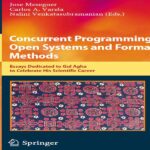(امام (ع) در این سخنرانی از آفرینش آسمان و زمین و آفرینش انسان یاد م ی كند.)
سپاس خداوندی را كه سخنوران از ستودن او عاجزند و حسابگران از شمارش نعمتهای او ناتوان و تلاشگران از ادای حق او درماندهاند. خدایی كه افكار ژرف اندیش، ذات او را درك نمیكنند و دست غوّاصان دریای علوم به او نخواهد رسید. پروردگاری كه برای صفات او حدّ و مرزی وجود ندارد و تعریف كاملی نمیتوان یافت و برای خدا وقتی معیّن و سرآمدی مشخّص نمیتوان تعیین كرد.
مخلوقات را با قدرت خود آفرید، و با رحمت خود بادها را به حركت درآورد و به وسیلۀ كوه ها اضطراب و لرزش زمین را به آرامش تبدیل كرد.
سرآغاز دین، خداشناسی است؛ و كمال شناخت خدا، باور داشتن او؛ و كمال باور داشتن خدا، شهادت به یگانگی اوست؛ و كمال توحید «شهادت بر یگانگی خدا » اخلاص؛ و كمال اخلاص، خدا را از صفات مخلوقات جدا كردن است؛ زیرا هر صفتی نشان می دهد كه غیر از موصوف، و هر موصوفی گواهی می دهد كه غیر از صفت است؛ پس كسی كه خدا را با صفت مخلوقات تعریف كند او را به چیزی نزدیك كرده، و با نزدیك كردن خدا به چیزی، دو خدا مطرح شده؛ و با طرح شدن دو خدا، اجزایی برای او تصوّر نموده؛ و با تصوّر اجزا برای خدا، او را نشناخته است. وكسی كه خدا را نشناسد به سوی او اشاره می كند و هر كس به سوی خدا اشاره كند، او را محدود كرده، به شمارش آوَرَد. و آن كس كه بگوید «خدا در چیست؟ » او را در چیز دیگری پنداشته است، و كسی كه بپرسد « خدا بر روی چه چیزی قرار دارد؟ » به تحقیق جایی را خالی از او در نظر گرفته است، در صورتی كه خدا همواره بوده و از چیزی به وجود نیامده است. با همه چیز هست، نه اینكه همنشین آنان باشد؛ و با همه چیز فرق دارد نه اینكه از آنان جدا و بیگانه باشد. انجام دهندۀ همۀ كارهاست، بدون حركت و ابزار و وسیله. بیناست حتّی در آن هنگام كه پدیده ای وجود نداشت، یگانه و تنهاست، زیرا كسی نبوده تا با او اُنس گیرد و یا از فقدانش وحشت كند.
خلقت را آغاز كرد و موجودات را بیافرید، بدون نیاز به فكر و اندیشه ای، یا استفاده از تجربه ای، بی آن كه حركتی ایجاد كند و یا تصمیمی مضطرب در او راه داشته باشد. برای پدید آمدن موجودات، وقت مناسبی قرار داد، و موجودات گوناگون را هماهنگ كرد و در هر كدام، غریزۀ خاصّ خودش را قرار داد و غرایز را همراه آنان گردانید. خدا پیش از آن كه موجودات را بیافریند، از تمام جزئیّات و جوانب آنها آگاهی داشت و حدود و پایان آنها را میدانست و از اسرار درون و بیرون پدیدهها آشنا بود. سپس خدای سبحان طبقات فضا را شكافت و اطراف آن را باز كرد و هوایِ به آسمان و زمین راه یافته را آفرید، و در آن آبی روان ساخت، آبی كه امواج متلاطم آن شكننده بود، كه یكی بر دیگری می نشست، آب را بر بادی طوفانی و شكننده نهاد و باد را به بازگرداندن آن فرمان داد و به نگهداری آب مسلّط ساخت و حدّ و مرز آن را به خوبی تعیین فرمود. فضا در زیر تند باد و آب بر بالای آن در حركت بود. سپس خدای سبحان طوفانی برانگیخت كه آب را متلاطم ساخت و امواج آب را پی در پی درهم كوبید. طوفان به شدّت وزید و از نقطه ای دور دوباره آغاز شد. سپس به طوفان امر كرد تا امواج دریاها را به هر سو روان كند و بر هم كوبد و با همان شدّت كه در فضا وزیدن داشت، بر امواج آب ها حمله ور گردد از اوّلِ آن برمی داشت و به آخرش می ریخت، و آب های ساكن را به امواج سركش برگرداند. تا آنجا كه آب ها روی هم قرار گرفتند و چون قلّ ههای بلند كوه ها بالا آمدند. امواج تُند كَف های برآمده از آب ها را در هوای باز و فضای گسترده بالا برد كه از آن، هفت آسمان را پدید آورد . آسمان پایین را چون موج مهار شده و آسمان های بالا را مانند سَقفی استوار و بلند قرار داد، بی آن كه نیازمند به ستونی باشد یا میخ هایی كه آنها را استوار كند. آنگاه فضای آسمان پایین را به وسیله نور ستارگانِ درخشنده زینت بخشید و در آن چراغی روشنایی بخش )خورشید(، و ماهی درخشان، در مدارِ فَلَكی گردان و برقرار و سقفی متحرّك و صفح های بی قرار، به جریان انداخت.
سپس آسمان های بالا را از هم گُشود و از فرشتگان گوناگون پُر نمود. گروهی از فرشتگان همواره در سجده اند و ركوع ندارند و گروهی در ركوعند و یارای ایستادن ندارند و گروهی در صف هایی ایستاده اند كه پراكنده نم یشوند و گروهی همواره تسبیح گویند و خسته نم یشوند و هیچ گاه خواب به چشمشان راه نم ییابد و عقل های آنان دچار اشتباه نم یگردد، بدن های آنان دچار سُستی نشده و آنان دچار بی خبریِ برخاسته از فراموشی نم یشوند.
برخی از فرشتگان، امینان وحی الهی و زبان گویای وحی برای پیامبران می باشند، كه پیوسته برای رساندن حكم و فرمان خدا در رفت و آمدند. جمعی از فرشتگان حافظان بندگان، و جمعی دیگر دَربانان بهشتِ خداوندند.
بعضی از آنها پاهایشان در طبقات پایین زمین قرار داشته و گرد نهاشان از آسمان فراتر، و اركان وجودشان از اطراف جهان گذشته، عرش الهی بر دوش هایشان استوار است، برابر عَرش خدا دیدگان به زیر افكنده و در زیر آن، بال ها را به خود پیچیده اند. میان این دسته از فرشتگان با آنها كه در مراتب پایین تری قرار دارند، حجابِ عِزّت و پرد ههای قدرت، فاصله انداخته است. هرگز خدا را با وَهم و خیال، در شكل و صورتی نمی پندارند و صفات پدید هها را بر او روا نمی دارند؛ هرگز خدا را در جایی محدود نمی سازند، و نه با همانند آوردن، به او اشاره می كنند.
سپس خداوند بزرگ، خاكی از قسمت های گوناگون زمین، از قسمت های سخت و نرم، شور و شیرین، گِرد آورد، آب بر آن افزود تا گِلی خالص و آماده شد، و با افزودن رطوبت، چسبناك گردید، كه از آن، اندامی شایسته، و عضوهایی جدا و به یكدیگر پیوسته آفرید . آن را خشكانید تا محكم شد. خشكاندن را ادامه داد تا سخت شد تا زمانی معیّن و سرانجامی مشخّص، اندام انسان، كامل گردید.
آنگاه از روحی كه آفرید در آن دمید تا به صورت انسانی زنده درآمد، دارای نیروی اندیشه، كه وی را به تلاش اندازد و دارای افكاری كه در دیگر موجودات، تصرّف نماید. به انسان اعضاء و جوارحی بخشید، كه در خدمت او باشند، و ابزاری عطا فرمود، كه آنها را در زندگی به كار گیرد. قدرت تشخیص به او داد تا حقّ و باطل را بشناسد، و حواس چشایی، و بویایی، و وسیلۀ تشخیص رن گها، و اجناس مختلف در اختیار او قرار داد. انسان را مخلوطی از رنگ های گوناگون، و چیزهای همانند و سازگار، و نیروهای متضادّ، و مزاج های گوناگون، گرمی، سردی، تری، و خشكی، قرار داد.
سپس از فرشتگان خواست تا آن چه در عُهده دارند انجام دهند، و عَهدی را كه پذیرفته اند وفا كنند، اینگونه كه بر آدم سجده كنند، و او را بزرگ بشمارند، و فرمود: «بر آدم سجده كنید پس فرشتگان همه سجده كردند جز شیطان » غرور و خودبزرگ بینی او را گرفت و شقاوت و بدی بر او غلبه كرد، و به آفرینش خود از آتش افتخار نمود،و آفرینش انسان از خاك را پَست شمرد. خداوند برای سزاوار بودن شیطان به خشم الهی، و برای كامل شدن آزمایش، و تحقّق وعد هها، به او مهلت داد و فرمود: «تا روز رستاخیز مهلت داده شدی .»
سپس خداوند آدم را در خانه ای مسكن داد كه زندگی در آن گوارا بود. جایگاه او را اَمن و اَمان بخشید و او را از شیطان و دشمنی او ترساند. پس شیطان او را فریب داد، بدان علّت كه از زندگی آدم در بهشت و همنشینی او با نیكان حسادت ورزید. پس آدم یقین را به تردید، و عزمِ استوار را به گفته های ناپایدار شیطان فروخت و شادی خود را به ترس تبدیل كرد، كه فریب خوردن برای او پشیمانی آورد.
آنگاه خدای سبحان دَرِ توبه را بر روی آدم گشود و كلمۀ رحمت، بر ز بان او جاری ساخت و به او وعده بازگشت به بهشت را داد. آنگاه آدم را به زمین، خانۀ آزمایش ها و مشكلات، فرود آورد، تا ازدواج كند، و فرزندانی پدید آورد، و خدای سبحان از فرزندان او پیامبرانی برگزید. خدا پیمان وحی را از پیامبران گرفت تا امانت رسالت را به مردم برسانند، آنگاه كه در عصر جاهلیّت ها بیشتر مردم، پیمان خدا را نادیده انگاشتند و حقّ پروردگار را نشناختند و برابر او به خدایان دروغین روی آوردند، و شیطانها مردم را از معرفت خدا باز داشتند و از پرستش او جدا كردند، خداوند پیامبران خود را مبعوث فرمود، و هر چند گاه، متناسب با خواست ههای انسا نها، رسولان خود را پی در پی اعزام كرد تا وفاداری به پیمان فطرت را از آنان باز جویند و نعمت های فراموش شده را به یاد آورند و با ابلاغ احكام الهی، حجّت را بر آنها تمام نمایند و توانمندی های پنهان شدۀ عقل ها را آشكار سازند و نشان ههای قدرت خدا را معرّفی كنند؛ مانند: سقفِ بلند پایۀ آسما نها بر فراز انسا نها، گاهوارۀ گستردۀ زمین در زیر پای آنها، و وسایل و عوامل حیات و زندگی، و را ههای مرگ و مردن، و مشكلات و رن جهای پیركننده، و حوادث پی در پی، كه همواره بر سر راه آدمیان است.
خداوند هرگز انسان ها را بدون پیامبر، یا كتابی آسمانی، یا برهانی قاطع، یا راهی استوار، رها نساخته است. پیامبرانی كه با اَندك بودن یاران، و فراوانی انكاركنندگان، هرگز در انجام وظیفه خود كوتاهی نكردند. بعضی از پیامبران، بشارت ظهور پیامبر آینده را دادند و برخی دیگر را پیامبران گذشته معرّفی كردند. بدین گونه، قرن ها پدید آمد، و روزگاران سپری شد؛ پدران رفتند و فرزندان جای آنها را گرفتند. تا این كه خدای سبحان، برای وفای به وعدۀ خود، و كامل گردانیدن دوران نبوّت، حضرت محمّد )كه درود خدا بر او باد( را مبعوث كرد؛ پیامبری كه از همه پیامبران پیمان پذیرش نبوّت او را گرفته بود، نشانه های او شهرت داشت؛ و تولّدش بر همه مبارك بود.
در روزگاری كه مردم روی زمین دارای مذاهب پراكنده، خواست ههای گوناگون،و روش های متفاوت بودند؛ عدّه ای خدا را به پدید هها تشبیه كرده و گروهی نام های ارزشمند خدا را انكار و به بُتها نسبت می دادند، و برخی به غیر خدا اشاره می كردند. پس خدای سبحان، مردم را به وسیله محمد از گمراهی نجات داد و هدایت كرد، و از جهالت رهایی بخشید.
سپس دیدار خود را برای پیامبر برگزید، و آنچه نزد خود داشت برای او پسندید و او را با كوچ دادن از دنیا گرامی داشت، و از گرفتاریها و مشكلات رهایی بخشید و كریمانه قبض روح كرد. رسول گرامی اسلام در میان شما مردم جانشینانی برگزید كه تمام پیامبران گذشته برای اُمّت های خود برگزیدند؛ زیرا آنها هرگز انسان ها را سرگردان رها نكردند و بدون معرّفی راهی روشن و نشانه های استوار، از میان مردم نرفتند. كتابِ پروردگار میان شماست، كه بیان كنندۀ حلال و حرام، واجب و مستحب، ناسخ و مَنسوخ، مُباح و مَمنوع، خاصّ و عام، پندها و مَثَ لها، مُطلَق و مُقَیّد، مُحكَم و مُتَشابِه می باشد. عبارات مُجمَل خود را تفسیر، و نكات پیچیدۀ خود را روشن می كند؛ از واجباتی كه پیمان شناسایی آن را گرفت و مستحبّاتی كه آگاهی از آنها لازم نیست. قسمتی از احكام دینی در قرآن واجب شمرده شد كه ناسخ آن در سنّت پیامبر آمده، و بعضی از آن،در سنّتِ پیامبر واجب شده كه در كتاب خدا ترك آن مجاز بوده است؛ بعضی از واجبات، وقتِ محدودی داشته كه درآینده از بین رفته است. محرّمات الهی، از هم جدا می باشند: برخی از آنها، گناهان بزرگ است كه وعدۀ آتش دارد و بعضی كوچك كه وعدۀ بخشش داده است، و برخی از اعمال كه اندكش مقبول و در انجام بیشتر آن آزادند. خدا حجّ خانۀ محترم خود را بر شما واجب كرد، همان خانه ای كه آن را قبله گاه انسان ها قرار داده كه چونان تشنگان به سوی آن روی می آورند، و همانند كبوتران به آن پناه می برند.
خدای سبحان، كعبه را مظهر تواضع بندگان در برابر عظمت خویش و نشانۀ اعتراف آنان به بزرگی و قدرت خود قرار داد و در میان انسا نها، شنوندگانی را برگزید كه دعوت او را برای حج، اجابت كنند و سخن او را تصدیق نمایند و پای بر جایگاه پیامبران الهی نهند. همانند فرشتگانی كه بر گِرد عرش الهی طواف می كنند، و سودهای فراوان در این عبادتگاه و محل تجارت زائران به دست آورند و به سوی وعده گاه آمرزش الهی بشتابند. خدای سبحان، كعبه را برای اسلام، نشانه گویا، و برای پناهندگان، خانه اَمن و اَمان قرار داد؛ اَدای حق آن را واجب كرد و حج بیت اللّه را واجب شمرد و بر همه شما انسان ها مقرّر داشت كه به زیارت آن بروید، و فرمود: «آن كس كه توان رفتن به خانه خدا را دارد، حج بر او واجب است و آن كس كه انكار كند، خداوند از همه جهانیان بی نیاز است.
In this sermon he recalls the creation of Earth and Sky and the birth of Adam.
The Creation of the Universe
Praise is due to Allah whose worth cannot be described by speakers, whose bounties cannot be counted by calculators and whose claim (to obedience) cannot be satisfied by those who attempt to do so, whom the height of intellectual courage cannot appreciate, and the divings of understanding cannot reach; He for whose description no limit has been laid down, no eulogy exists, no time is ordained and no duration is fixed. He brought forth creation through His Omnipotence, dispersed winds through His Compassion, and made firm the shaking earth with rocks. The foremost in religion is the acknowledgement of Him, the perfection of acknowledging Him is to testify Him, the perfection of testifying Him is to believe in His Oneness, the perfection of believing in His Oneness is to regard Him Pure, and the perfection of His purity is to deny Him attributes, because every attribute is a proof that it is different from that to which it is attributed and everything to which something is attributed is different from the attribute. Thus whoever attaches attributes to Allah recognises His like, and who recognises His like regards Him two; and who regards Him two recognises parts for Him; and who recognises parts for Him mistook Him; and who mistook Him pointed at Him; and who pointed at Him admitted limitations for Him; and who admitted limitations for Him numbered Him. Whoever said in what is He, held that He is contained; and whoever said on what is He held He is not on something else. He is a Being but not through phenomenon of coming into being. He exists but not from non-existence. He is with everything but not in physical nearness. He is different from everything but not in physical separation. He acts but without connotation of movements and instruments. He sees even when there is none to be looked at from among His creation. He is only One, such that there is none with whom He may keep company or whom He may miss in his absence. He initiated creation most initially and commenced it originally, without undergoing reflection, without making use of any experiment, without innovating any movement, and without experiencing any aspiration of mind. He allotted all things their times, put together their variations gave them their properties, and determined their features knowing them before creating them, realising fully their limits and confines and appreciating their propensities and intricacies. When Almighty created the openings of atmosphere, expanse of firmament and strata of winds, He flowed into it water whose waves were stormy and whose surges leapt one over the other. He loaded it on dashing wind and breaking typhoons, ordered them to shed it back (as rain), gave the wind control over the vigour of the rain, and acquainted it with its limitations. The wind blew under it while water flowed furiously over it. Then Almighty created forth wind and made its movement sterile, perpetuated its position, intensified its motion and spread it far and wide. Then He ordered the wind to raise up deep waters and to intensify the waves of the oceans. So the wind churned it like the churning of curd and pushed it fiercely into the firmament throwing its front position on the rear and the stationary on the flowing till its level was raised and the surface was full of foam. Then Almighty raised the foam on to the open wind and vast firmament and made therefrom the seven skies and made the lower one as a stationary surge and the upper one as protective ceiling and a high edifice without any pole to support it or nail to hold it together. Then He decorated them with stars and the light of meteors and hung in it the shining sun and effulgent moon under the revolving sky, moving ceiling and rotating firmament.
The Creation of the Angels
Then He created the openings between high skies and filled them with all classes of His angels. Some of them are in prostration and do not kneel up. Others in kneeling position and do not stand up. Some of them are in array and do not leave their position. Others are extolling Allah and do not get tired. The sleep of the eye or the slip of wit, or languor of the body or the effect of forgetfulness does not effect them. Among them are those who work as trusted bearers of His message, those who serve as speaking tongues for His prophets and those who carry to and fro His orders and injunctions. Among them are the protectors of His creatures and guards of the doors of the gardens of Paradise. Among them are those also whose steps are fixed on earth but their necks are protruding into the skies, their limbs are getting out on all sides, their shoulders are in accord with the columns of the Divine Throne, their eyes are downcast before it, they have spread down their wings under it and they have rendered between themselves and all else curtains of honour and screens of power. They do not think of their Creator through image, do not impute to Him attributes of the created, do not confine Him within abodes and do not point at Him through illustrations.
Description of the Creation of Adam
Allah collected from hard, soft, sweet and sour earth, clay which He dripped in water till it got pure, and kneaded it with moisture till it became gluey. From it He carved an image with curves, joints, limbs and segments. He solidified it till it dried up for a fixed time and a known duration. Then He blew into it out of His Spirit whereupon it took the pattern of a human being with mind that governs him, intelligence which he makes use of, limbs that serve him, organs that change his position, sagacity that differentiates between truth and untruth, tastes and smells, colours and species. He is a mixture of clays of different colours, cohesive materials, divergent contradictories and differing properties like heat, cold, softness and hardness. Then Allah asked the angels to fulfil His promise with them and to accomplish the pledge of His injunction to them by acknowledging Him through prostration to Him and submission to His honoured position. So Allah said: “Be prostrate towards Adam and they prostrated except Iblis (Satan).” (Qur’an, 2:34; 7:11; 17:61; 18:50; 20:116) Self-importance withheld him and vice overcame him. So that he took pride in his own creation with fire and treated contemptuously the creation of clay. So Allah allowed him time in order to let him fully deserve His wrath, and to complete (man’s) test and to fulfil the promise (He had made to Satan). Thus, He said: “Verily you have been allowed time till the known Day.” (Qur’an, 15:38; 38:81) Thereafter, Allah inhabited Adam (p.b.u.h.) in a house where He made his life pleasant and his stay safe, and He cautioned him of Iblis and his enmity. Then his enemy (Iblis) envied his abiding in Paradise and his contacts with the virtuous. So he changed his conviction into wavering and determination into weakness. He thus converted his happiness into fear and his prestige into shame. Then Allah offered to Adam (p. b.u.h.) the chance to repent, taught him words of His Mercy, promised him return to His Paradise and sent him down to the place of trial and procreation of progeny.
Allah chooses His Prophets
From his (Adam’s) progeny Allah chose prophets and took their pledge for his revelation and for carrying His message as their trust. In course of time many people perverted Allah’s trust with them and ignored His position and took compeers along with Him. Satan turned them away from knowing Him and kept them aloof from His worship. Then Allah sent His Messengers and series of His prophets towards them to get them to fulfil the pledges of His creation, to recall to them His bounties, to exhort them by preaching, to unveil before them the hidden virtues of wisdom and show them the signs of His Omnipotence namely the sky which is raised over them, the earth that is placed beneath them, means of living that sustain them, deaths that make them die, ailments that turn them old and incidents that successively betake them. Allah never allowed His creation to remain without a Prophet deputised by Him, or a book sent down from Him or a binding argument or a standing plea. These Messengers were such that they did not feel little because of smallness of their number or of largeness of the number of their falsifiers. Among them was either a predecessor who would name the one to follow or the follower who had been introduced by the predecessor.
The Prophethood of Muhammmad
In this way ages passed by and times rolled on, fathers passed away while sons took their places till Allah deputised Muhammmad (peace be upon him and his progeny) as His Prophet, in fulfilment of His promise and in completion of His Prophethood. His pledge had been taken from the Prophets, his traits of character were well reputed and his birth was honourable. The people of the earth at this time were divided in different parties, their aims were separate and ways were diverse. They either likened Allah with His creation or twisted His Names or turned to else than Him. Through Muhammmad (p.b.u.h.a.h.p.) Allah guided them out of wrong and with his efforts took them out of ignorance. Then Allah chose for Muhammmad, peace be upon him and on his progeny, to meet Him, selected him for His own nearness, regarded him too dignified to remain in this world and decided to remove him from this place of trial. So He drew him towards Himself with honour. Allah may shower His blessing on him, and his progeny.
The Holy Qur’an and Sunnah
But the Prophet left among you the same which other Prophets left among their peoples, because Prophets do not leave them untended (in dark) without a clear path and a standing ensign, namely the Book of your Creator clarifying its permission and prohibitions, its obligations and discretion, its repealing injunctions and the repealed ones, its permissible matters and compulsory ones, its particulars and the general ones, its lessons and illustrations, its long and the short ones, its clear and obscure ones, detailing its abbreviations and clarifying its obscurities. In it there are some verses whose knowledge (1) is obligatory and others whose ignorance by the people is permissible. It also contains what appears to be obligatory according to the Book (2) but its repeal is signified by the Prophet’s action (sunnah) or that which appears compulsory according to the Prophet’s action but the Book allows not following it. Or there are those which are obligatory in a given time but not so after that time. Its prohibitions also differ. Some are major regarding which there exists the threat of fire (Hell), and others are minor for which there are prospects of forgiveness. There are also those of which a small portion is also acceptable (to Allah) but they are capable of being expanded.
In this very sermon he spoke about Hajj
Allah has made obligatory upon you the pilgrimage (hajj) to His sacred House which is the turning point for the people who go to it as beasts or pigeons go towards spring water. Allah the glorified made it a sign of their supplication before His Greatness and their acknowledgement of His Dignity. He selected from among His creation those who on listening to His call responded to it and testified His word. They stood in the position of His Prophets and resembled His angels who surround the Divine Throne securing all the benefits of performing His worship and hastening towards His promised forgiveness. Allah the glorified made it (His sacred House) an emblem for Islam and an object of respect for those who turn to it. He made obligatory its pilgrimage and laid down its claim for which He held you responsible to discharge it. Thus, Allah the glorified said: “. . . And (purely) for Allah, is incumbent upon mankind, the pilgrimage to the House, for those who can afford to journey thither. And whoever denieth then verily, Allah is Selfsufficiently independent of the worlds” (Qur’an, 3:96).
فایل صوتی فارسی مربوط به این خطبه را از لینک ذیل دانلود نمایید:
Download: Nahjul-Balagah-Sermon-001





































نظرات کاربران